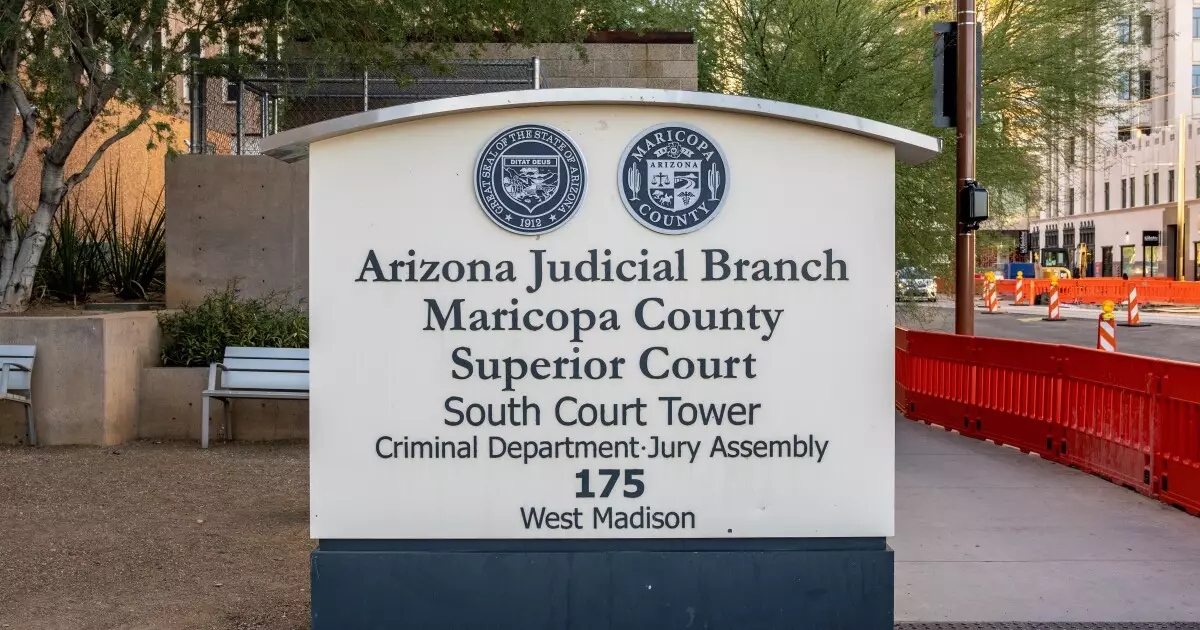In a significant legal development, the Goldwater Institute has filed a lawsuit against the town council of Gilbert, Arizona, asserting that their recent decision to increase taxes violates the state constitution. This case underscores a growing tension between local governments seeking to manage infrastructure needs and the legal boundaries set by state law. The lawsuit, initiated in Maricopa County Superior Court, challenges a decision made by the Gilbert council on October 22 to raise sales, use, and lodging tax rates. This increase aims to generate approximately $55 million annually to address infrastructure deficits.
The legal basis of the lawsuit hinges on a provision in the Arizona Constitution that restricts local governments from imposing or escalating transaction-based taxes linked to service transactions and gross receipts. Such constitutional limitations exist to protect citizens from unpredictable tax burdens and ensure that local authorities adhere to established fiscal guidelines. With the town of Gilbert boasting a population exceeding 280,000, the implications of this lawsuit are substantial, potentially influencing how local governments across Arizona navigate their fiscal responsibilities.
Context of the Tax Increase Decisions
The impetus for the tax increase stems from Gilbert officials’ claims of urgent infrastructure needs. They have cited 23 key projects in parks, recreation, and public safety, culminating in an estimated need of over $700 million. The town’s strategy indicates a preference for cash funding critical infrastructure to optimize taxpayer value and minimize long-term debt expenses. Nonetheless, critics argue that the method and justification for these tax increases may infringe upon legal norms concerning fiscal responsibility. The residents’ discontent is palpable, especially among groups like the Home Builders Association of Central Arizona, who recognize how such tax hikes affect the local economy and housing market stability.
In the broader context, this lawsuit mirrors other legal challenges around the state. Just months earlier, the Goldwater Institute brought forward similar litigation against the town of Payson, contesting their plans to issue $70 million in bonds. Although that case was eventually deemed moot, it revealed a pivotal moment in communities as they weigh the ramifications of infrastructure financing against constitutional prohibitions. The ongoing discourse ultimately raises questions about the lengths to which local governments must go to fund necessary projects without overstepping legal bounds.
What Lies Ahead for Gilbert
While Gilbert officials have refrained from commenting directly on the lawsuit, the outcome may set a precedent for other municipalities in Arizona grappling with similar infrastructure challenges. This evolving situation underscores the delicate balance between urgently needed community improvements and adherence to constitutional mandates designed to protect residents from fiscal overreach. As the lawsuit unfolds, it is crucial for stakeholders, including local government officials, residents, and legal experts, to engage in constructive dialogue about best practices for infrastructure funding that respects both needs and legal frameworks.
In the game of municipal governance, where public trust and legal integrity are at stake, the Gilbert case highlights the complexities of tax policy-making in the face of pressing infrastructure demands. The path forward demands careful consideration of not only immediate fiscal needs but also long-term repercussions for governance and community relations.

